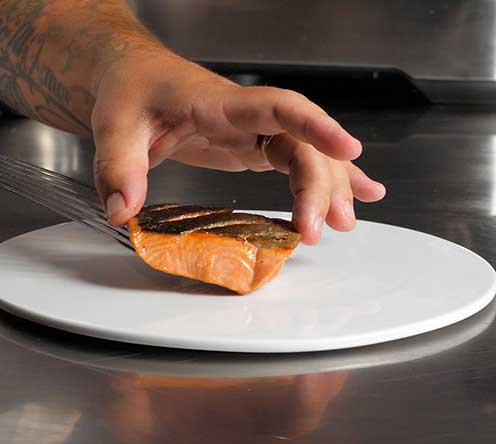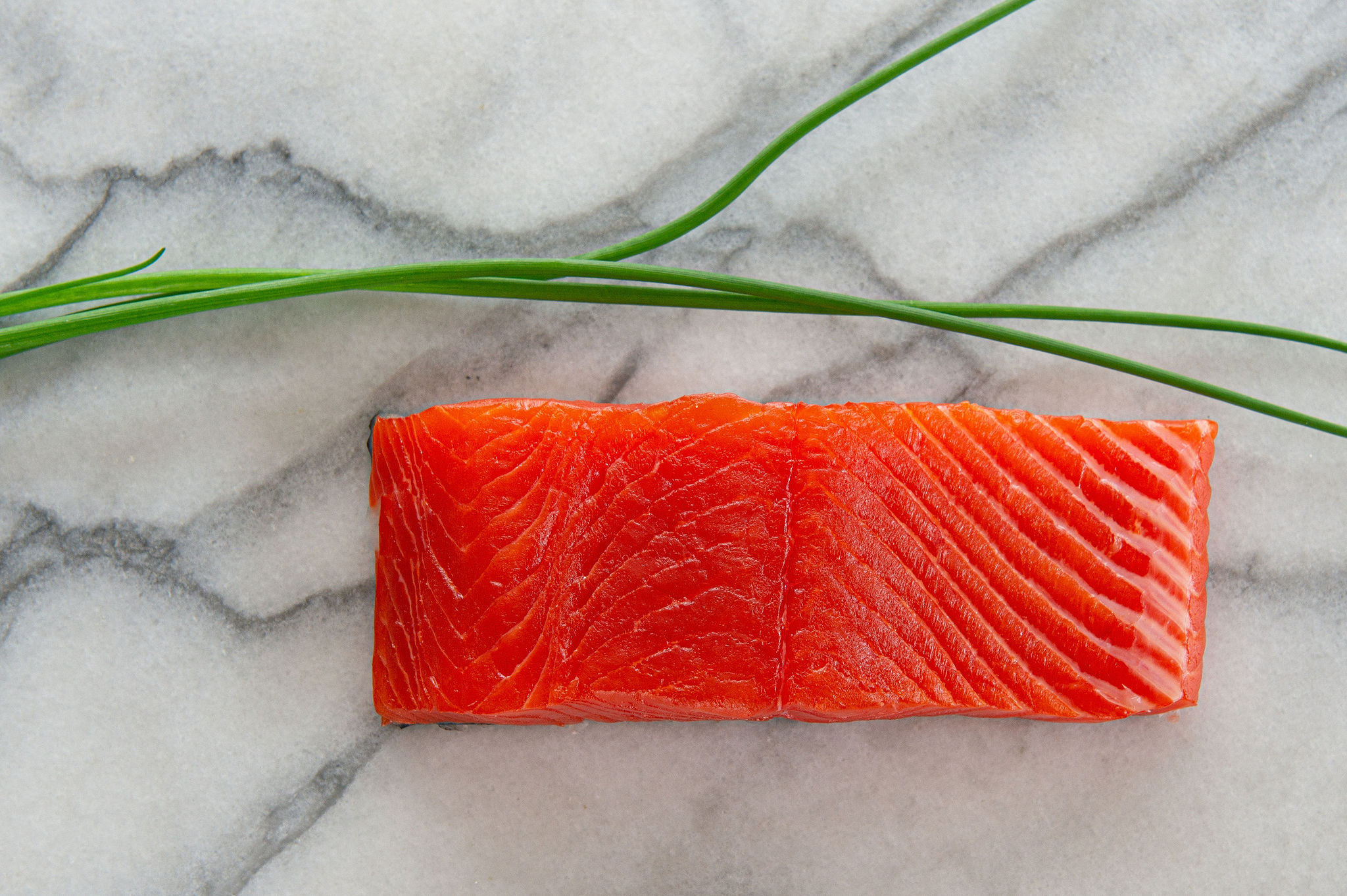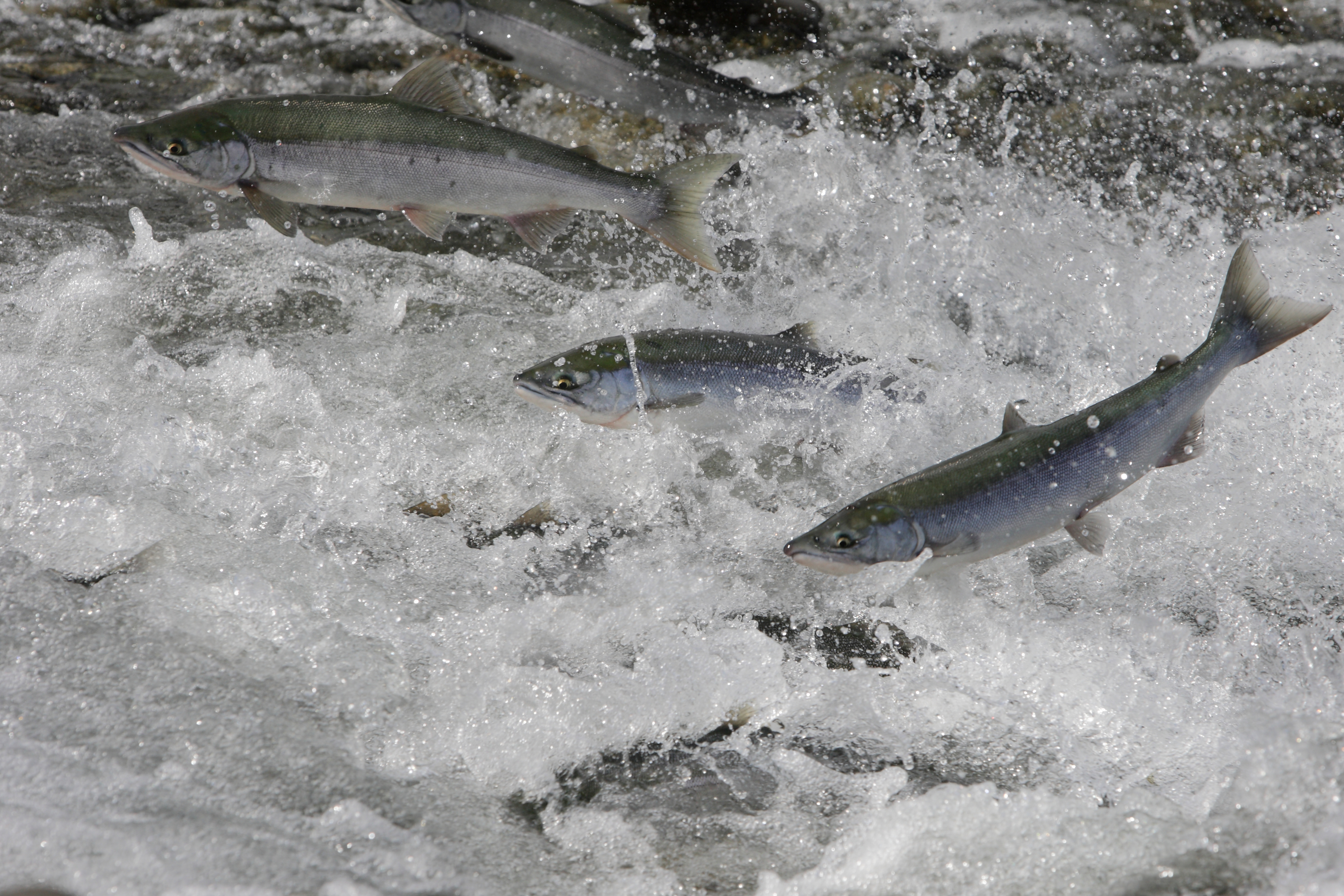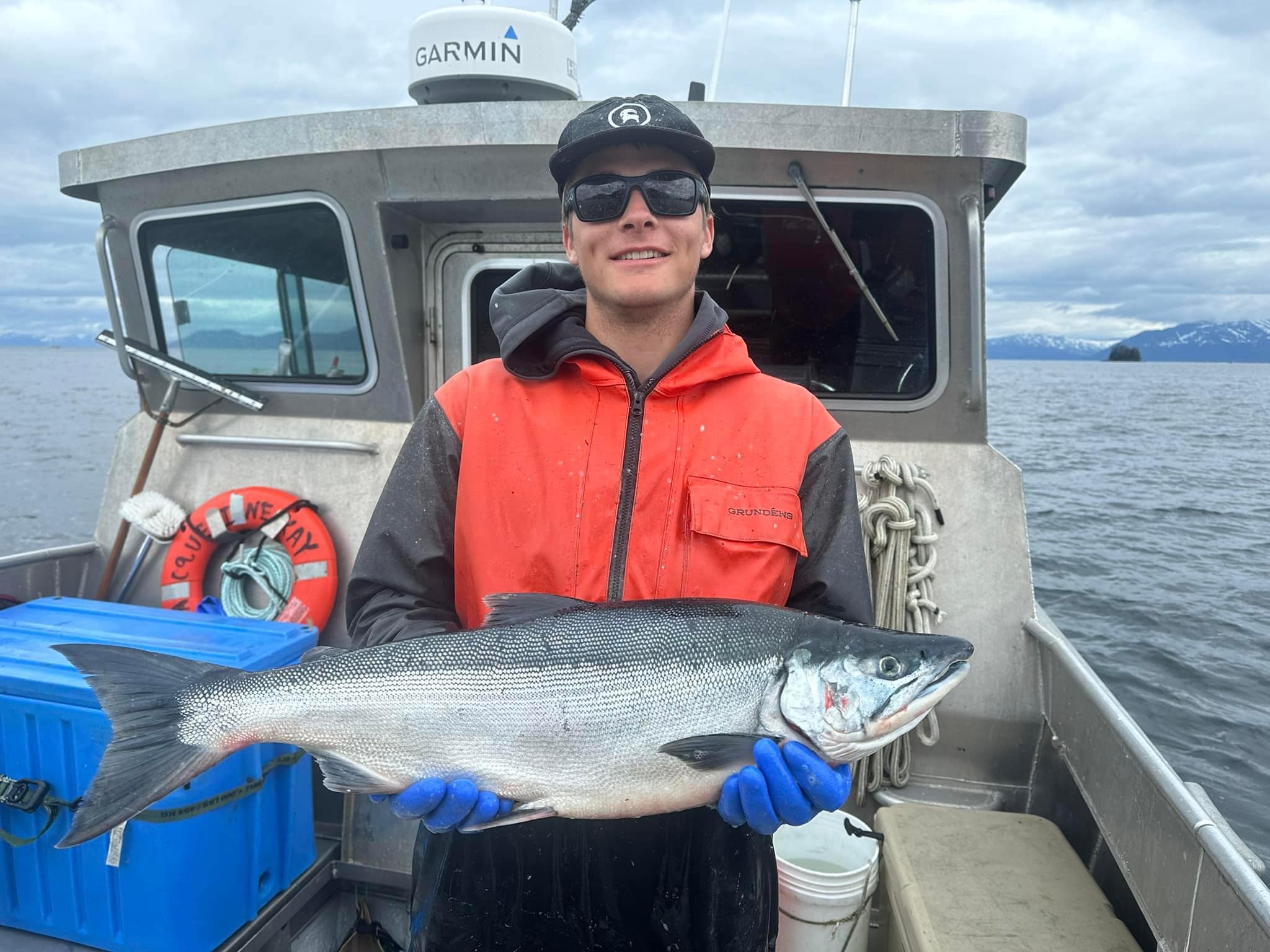By using our website, you agree to the use of cookies as described in our Cookie Policy
The Superfood of the Sea
The Many Benefits Of Consuming Prince William Sound Salmon
Salmon is a type of fish that is not only delicious but also incredibly healthy. It is a rich source of omega-3 fatty acids, protein, and a variety of vitamins and minerals. Consuming Prince William Sound salmon on a regular basis can provide a wide range of health benefits, including reducing the risk of heart disease, improving brain function, and supporting overall wellness.

Photo Courtesy of Tiny Urban Kitchen
Savoring Salmon
One of the most significant health benefits of salmon is its ability to reduce the risk of heart disease. Salmon is an excellent source of omega-3 fatty acids, specifically EPA and DHA, which have been shown to lower blood pressure and decrease the risk of heart attack and stroke. A study published in the Journal of the American Medical Association (JAMA) states that eating fatty fish, such as salmon, at least twice a week reduced the risk of heart attack and stroke by 36%. (1) Omega-3s also have anti-inflammatory properties, which can help to reduce the risk of heart disease. The European Journal of Epidemiology found that people with higher levels of omega-3s in their blood had a lower risk of heart disease. (2)
Boosting Brain Health For All Ages
Salmon is also beneficial for brain health. The omega-3 fatty acids found in salmon are essential for proper brain function and development. They have been shown to improve memory, concentration, and cognitive function in both children and adults. This is particularly important for older adults, as omega-3s have been shown to slow down age-related cognitive decline. According to The Journal of the International Society of Sports Nutrition, older adults who took omega-3 supplements had improved memory and cognitive function. (3) More on brain health here.

Photo Courtesy of Chelsea Haisman
A Nutritious Choice For Building Muscle And Maintaining Strong Bones
The high protein content of Prince William Sound salmon makes it a great food choice for those who are looking to build and maintain muscle mass. Salmon is also a good source of vitamin D, which is essential for healthy bones. The vitamin D found in salmon can help to prevent osteoporosis and other bone-related conditions. The Journal of Bone and Mineral Research states that people with higher levels of vitamin D had a lower risk of osteoporosis. (4)
Salmon is also a good source of other essential nutrients, such as selenium, potassium, and vitamin B12. Selenium is an important mineral for maintaining healthy thyroid function, while potassium is essential for maintaining healthy blood pressure and keeping the heart healthy. Vitamin B12 is important for maintaining healthy nerve cells and red blood cells.
It's important to note that not all salmon is created equal and wild-caught Alaska salmon is often considered to be of higher quality and more nutritious than farmed salmon. Wild Alaska salmon also has less exposure to pollution and has a lower risk of carrying contaminants such as pesticides, PCBs, and dioxins. As reported by The Journal of Environmental Science and Technology, farmed salmon had higher levels of contaminants than wild salmon. (5)

Plating A Piece of Sockeye Salmon
In conclusion, salmon is an incredibly healthy food that can provide a wide range of health benefits. Its high omega-3 content, protein, vitamins, and minerals make it an excellent choice for anyone looking to improve their overall health and well-being. Incorporating wild-caught Alaska salmon into your diet can be a delicious and easy way to boost your health.
For more in-depth nutrition information "Healthy Lifestyles Begin With Alaska Seafood".
The health benefits of Prince William Sound salmon are clearly extensive. Now you can shop smarter knowing exactly why this salmon is touted for its nutrition and have confidence that you are making a great choice for your family. Look for canned Prince William Sound salmon year-round at a retailer near you using our Fish Finder here.
Nutrients in a typical wild Alaska sockeye (red) salmon per 3 oz. serving (6) according to the Alaska Seafood Marketing Institute:
Calories: 130
Protein (g): 23
Fat (g): 5
Saturated Fat (g): 1
Sodium (mg): 80
Cholesterol (mg): 50
Omega-3, DHA and EPA (mg): 730
Vitamin B12 (mcg): 3.8
Vitamin A (mcg): 50
Vitamin D (mcg): 14.2
Selenium (mcg): 30
Potassium (mcg): 370
Iron (mg): 0.4
Calcium (mg): 10
Sources:
1. Rizos, E. C., Ntzani, E. E., Bika, E., Kostapanos, M. S., & Elisaf, M. S. (2012). Association Between Omega-3 Fatty Acid Supplementation and Risk of Major Cardiovascular Disease Events: A Systematic Review and Meta-analysis. JAMA, 308(10), 1024–1033. doi: 10.1001/2012.jama.11374>
2. Albert, C. B., Campos, H., Stampfer, M. J., Ridker, P. M., Manson, J. E., Willett, W. C., & Ma, J. (2002). Blood Levels of Long-Chain n-3 Fatty Acids and the Risk of Sudden Death. New England Journal of Medicine, 346(15), 1113–1118. doi: 10.1056/nejmoa013146
3. Yurko-Mauro, K., McCarthy, D., Rom, D., Nelson, E. B., Ryan, A. S., Blackwell, A., Salem, N., Stedman, M., & Salem, N., Jr. (2010). Beneficial effects of docosahexaenoic acid on cognition in age-related cognitive decline. Alzheimer’s & Dementia, 6(6), 456–464. doi: 10.1016/j.jalz.2010.03.005
4. Bischoff-Ferrari, H. A., Willett, W. C., Wong, J. B., Giovannucci, E., Dietrich, T., & Dawson-Hughes, B. (2005). Fracture prevention with vitamin D supplementation: A meta-analysis of randomized controlled trials. JAMA, 293(18), 2257–2264. doi: 10.1001/jama.293.18.2257
5. Hites, R. A., Foran, J. A., Carpenter, D. O., Hamilton, M. C., Knuth, B. A., & Schwager, S. J. (2004). Global assessment of organic contaminants in farmed salmon. Science, 303(5655), 226–229. doi: 10.1126/science.1091420
Alaska Seafood Marketing Institute. 2020. Health & Nutrition.>Alaska Seafood. alaskaseafood.org/health-nutrition/
‹ Back







